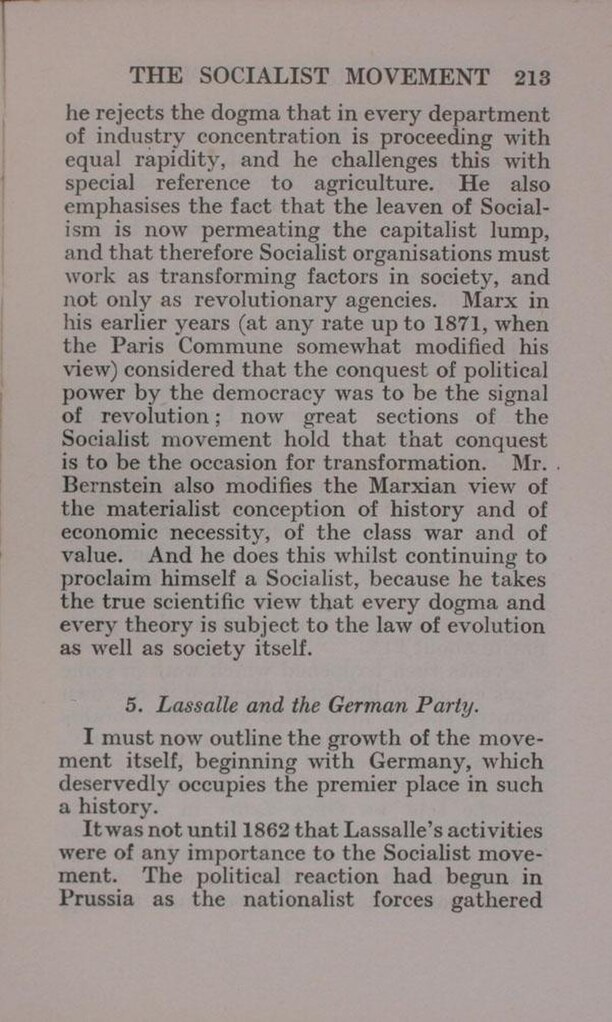he rejects the dogma that in every department of industry concentration is proceeding with equal rapidity, and he challenges this with special reference to agriculture. He also emphasises the fact that the leaven of Socialism is now permeating the capitalist lump, and that therefore Socialist organisations must work as transforming factors in society, and not only as revolutionary agencies. Marx in his earlier years (at any rate up to 1871, when the Paris Commune somewhat modified his view) considered that the conquest of political power by the democracy was to be the signal of revolution; now great sections of the Socialist movement hold that that conquest is to be the occasion for transformation. Mr. Bernstein also modifies the Marxian view of the materialist conception of history and of economic necessity, of the class war and of value. And he does this whilst continuing to proclaim himself a Socialist, because he takes the true scientific view that every dogma and every theory is subject to the law of evolution as well as society itself.
5. Lassalle and the German Party.
I must now outline the growth of the movement itself, beginning with Germany, which deservedly occupies the premier place in such a history.
It was not until 1862 that Lassalle's activities were of any importance to the Socialist movement. The political reaction had begun in Prussia as the nationalist forces gathered
